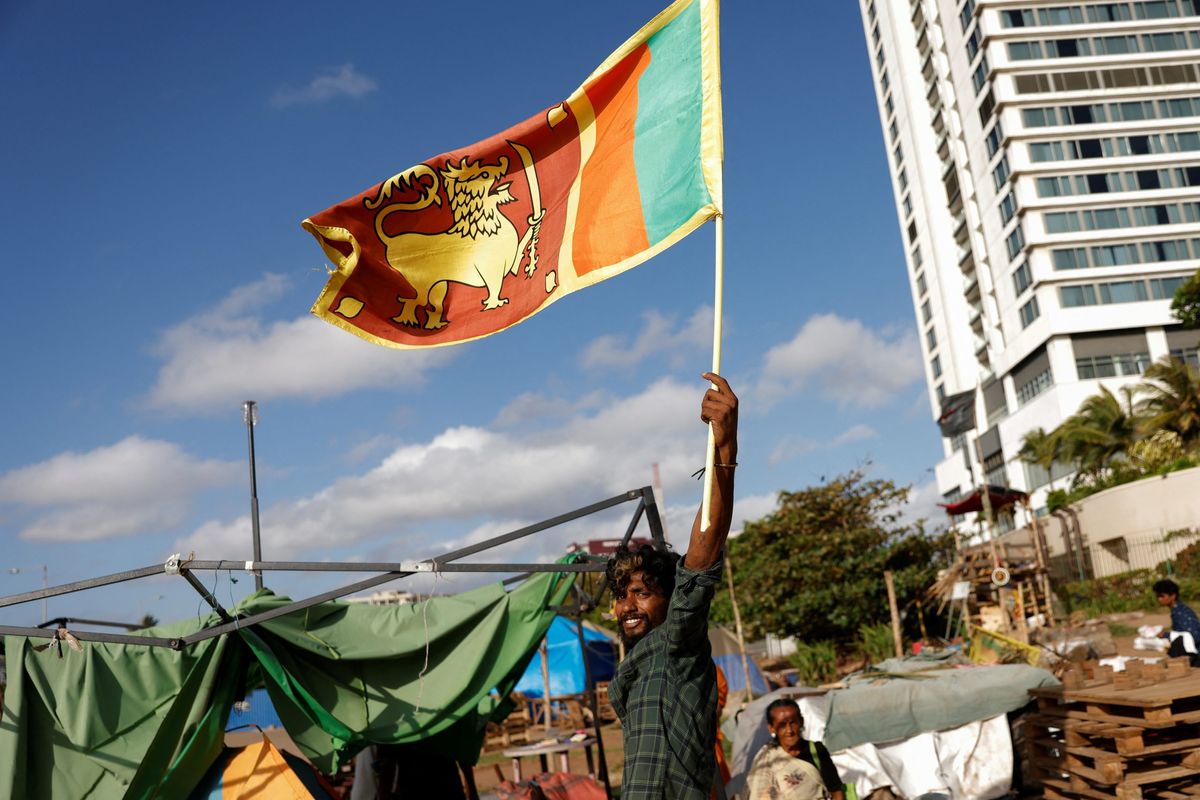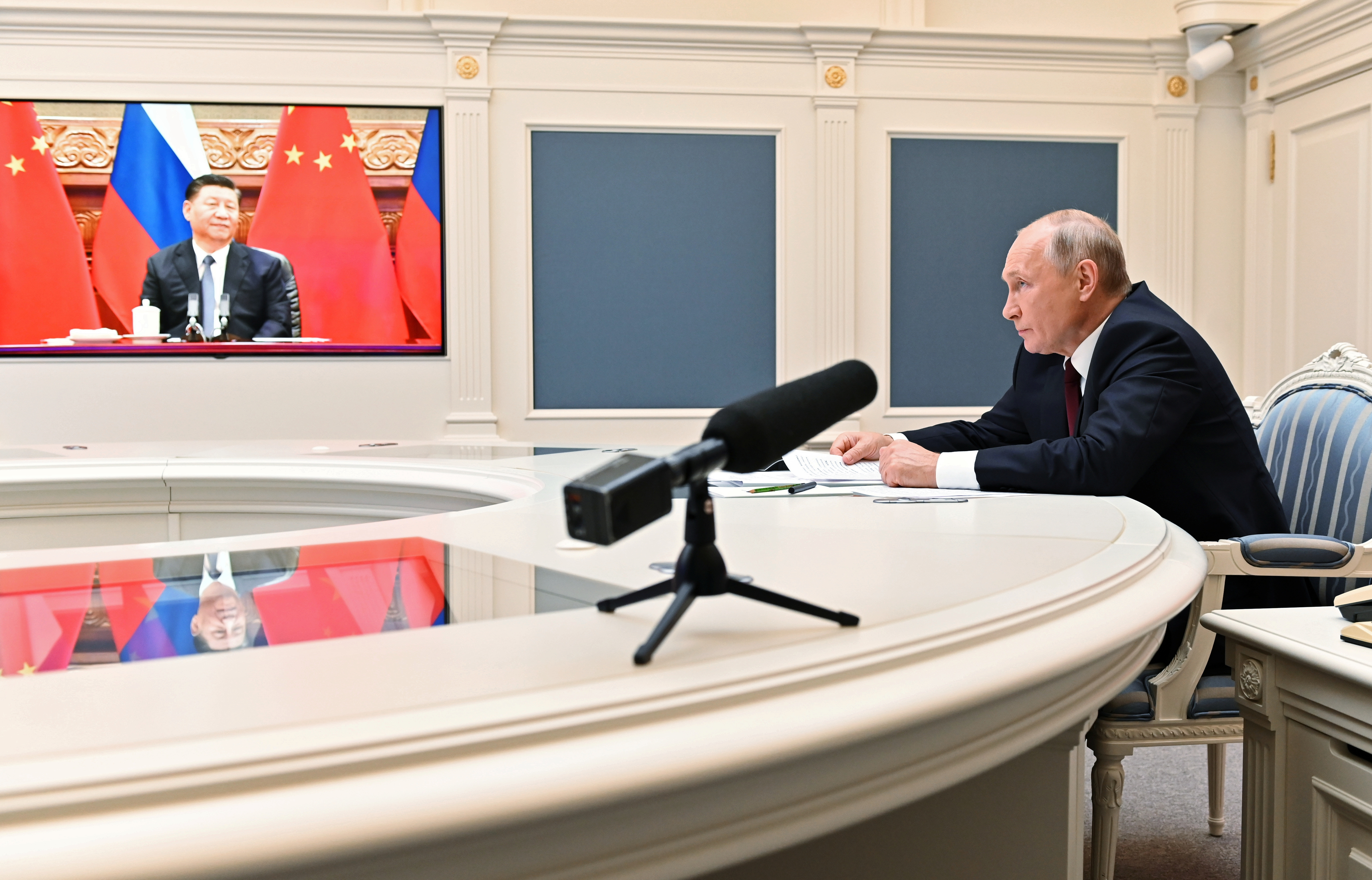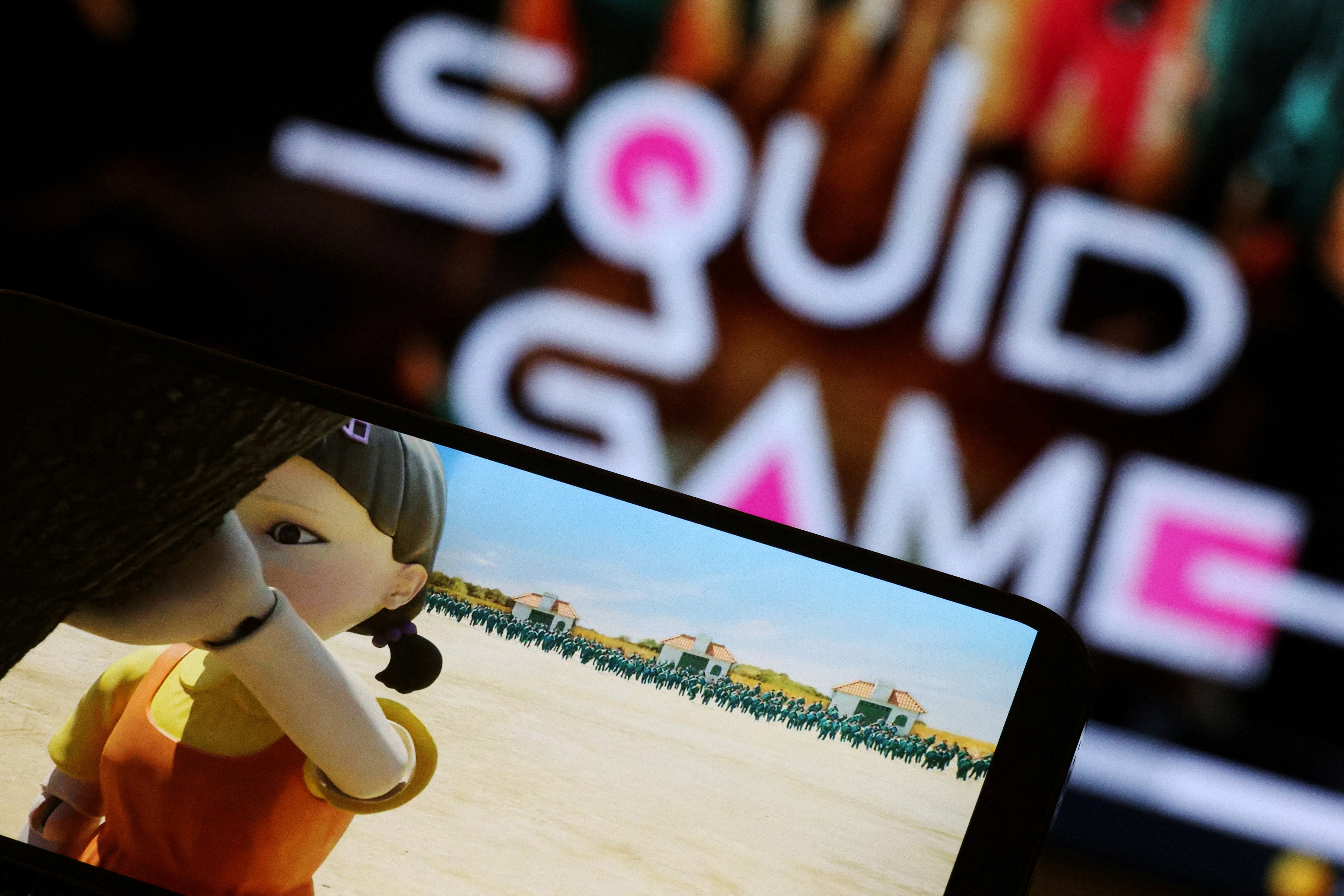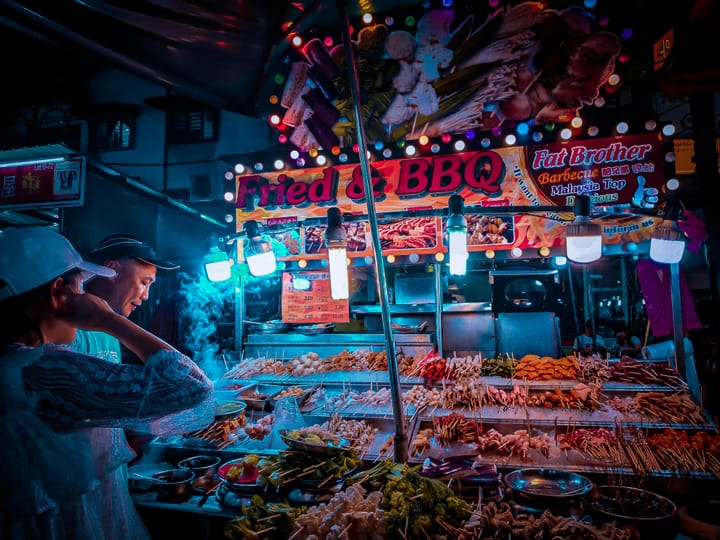From Sri Lanka’s debt woes to trash-loving clever cockatoos – Here’s your September 14 news briefing

A few minutes every morning is all you need.
Stay up to date on the world's Headlines and Human Stories. It's fun, it's factual, it's fluff-free.
To start off, we’re looking into:
Sri Lanka’s next move in its debt crisis
Sri Lanka is dealing with a major debt crisis ranging from estimates of US$85 billion to over US$100 billion. The crisis has resulted in a depletion of essential imports like fuel and medicine. Sri Lanka’s former President Gotabaya Rajapaksa was also booted out of office after nationwide protests over this disaster. While the International Monetary Fund (IMF) agreed to loan the country US$2.9 billion, this can only happen with additional assurances from Sri Lanka’s top three lenders, India, China and Japan.
Yesterday, the Sri Lankan government announced that the financial advisory company Lazard had started this process of international cooperation. In talks with India, China and Japan, Lazard is trying to restructure Sri Lanka’s debt. Combined, Sri Lanka owes these three countries about US$13 billion, with China being the island’s biggest creditor. Later this week, the government will also be speaking with private creditors who have US$12 billion in bonds, according to an official source. It’s expected to reach out to the US, too.
President Xi’s planned meeting with Putin

China is gearing up for its next party congress, which will take place in about a month. President Xi is expected to get a historic third leadership term during the congress, making him the country’s most powerful leader since Mao Zedong. As China prepares for this event, China-Russia relations are at the forefront of many minds. With shared tense relations with the West and Russian oil ties, the two get along pretty well. Still, China has refused to supply Russia with weapons in the Ukraine conflict.
Today, President Xi is expected to make a one-day stop in Kazakhstan before heading over to Uzbekistan, where he’ll meet with Russian President Putin to discuss, among other things, the ongoing conflict in Ukraine. President Xi is using the trip to promote his recently-announced “Global Security Initiative." This is Xi’s first overseas trip since the onset of the COVID pandemic back at the beginning of 2020 and the first time the two leaders will be together since before Russia invaded Ukraine.
Why do people hate on ESG?

If you haven’t heard of ESG, a good place to start is the acronym – it stands for Environment, Social and Governance. The idea is to allow companies to measure how socially conscious they are, specifically regarding issues like carbon footprints and green initiatives.
So, there’s been some criticism of ESG recently. Conservatives in the US have been critical of ESG funds, calling them “woke" as an insult. Also, Republican-controlled localities are going after asset managers who trade ESG assets, saying they’re a danger to local fossil-fuel industries. (Which, in fairness, is kind of the point.)
Even supporters of ESG have criticised the broad application of the term, likening it to greenwashing. These critics have said that the classification isn’t closely regulated and can be abused to convince people that certain investments are environmentally conscious without actually proving it.
To end, we’ll look into:
Foreign-language content is finally getting its heyday

For a long time, most content meant for global consumption has been in English. Pick a year out of the past 50 for awards like the Emmys, and you’re not going to find many foreign-language TV shows (or films) topping the charts. But if you’ve lived abroad, you know that English-language content isn’t the only thing out there. Pick a region where English isn’t the native language, and you’re likely to find dozens, if not hundreds or thousands, of TV shows and films with their own dedicated local following.
Well, Netflix seems to have caught on to the fact that audiences are interested in non-English content, and it’s looking to break into a new market to up its competitive edge. The best possible example is the insanely popular South Korean drama “Squid Game," which just won top honors at the Emmys for best actor and outstanding directing. The series cost around US$21 million to produce and captured viewers’ eyeballs for more than 1.65 billion hours in only four weeks, remaining at the top of Netflix’s watch list for months.
Tapping into this market has been a solid move for Netflix. Even though the company reported huge losses in subscribers in the first quarter of this year, it still experienced growth in one region – Asia Pacific – gaining over a million subscribers to the platform.
“Squid Game" isn’t the only foreign-language TV show Netflix has invested in. It’s also gotten traction with “La Casa de Papel" (“Money Heist"), “Lupin" and more. These shows have been successful not only in their target language markets but actually in plenty of other places where the language of the show isn’t spoken or understood.
Another benefit to some of these new titles is that they’re a lot cheaper to make. If you look at English-language shows like “The Mandalorian" or “Succession," you’ll notice the intensely-realistic CGI and massive sets. Foreign-language shows, though, open up a whole new world to viewers, gripping people largely by their quality narratives and talented performances and tapping into a much broader global talent pool.
Netflix isn’t the only company doing foreign-language content, but it’s having the most success at the moment. And for Netflix, it’s about survival; the introduction of massive names into the streaming industry like Disney+ and HBO Max has meant that Netflix, the once innovator in the industry, has had to find new avenues to thrive. And hey, if it means we get a season two of “Squid Game," we’re all for it.
In other news …
📉Stocks: MSCI’s global gauge of stocks dropped by 3.66% to 2,619.50.
📰Some specifics:
- S&P 500 is at 3,932.69, a drop of 4.32%
- Nasdaq Composite fell by 5.16% to 11,633.57.
- Dow Jones slipped by 3.94% to 31,104.97.
- Hang Seng Index is down 0.18% to 19,326.86.
🧠Some quick factors to bear in mind:
- In the US, August’s consumer price index report was released, showing headline inflation rose 0.1% monthly even with a drop in gas prices, which dampened investors’ expectations of a less hawkish Fed. And, yesterday’s Labor Department data for August shows that declining gasoline prices were offset by rises in rent and food costs. So now, there’s a chance that the Fed could hike interest rates even higher than the 75 basis points expected.
- In Beijing, authorities may strengthen measures to stop an economic slowdown after disappointing tourism revenue during the Mid-Autumn Festival. Tourism revenue for the holiday came in at 60% pre-COVID levels, which is an overall bummer for business revenues.
- And August trade data suggests that with waning global demand, exports may not support domestic growth as much as before.
- Now, we’re waiting on China’s release of August retail sales, industrial production, and investment data this Friday.
👄Some comments and chatter:
- “It caught the market off guard. The market had been expecting at least that we had leveled off – perhaps not moving downward but certainly not climbing higher. It was the wrong direction and the concern, of course, is always translated into what does this mean for the Fed,” said LPL Financial’s Quincy Krosby.”
- China’s monetary policy “will give more liquidity support to Hong Kong stocks,” said Wang Xueheng, an analyst at Guosen Securities. “We stick to the view that there’s limited downside room for Hong Kong stocks and there’s a big potential for upside room.”
🛢Oil: Oil prices dropped following inflation data and more COVID curbs in China. US crude is down 0.54% at US$87.31 per barrel, and Brent settled at US$93.17, a drop of 0.88%.
👛Bitcoin: Bitcoin plunged by 9.67% today, hitting 20,235.10 at the time of writing.
📄Trump’s pals get served: More than 30 people with connections to former US President Donald Trump have been subpoenaed by the US Justice Department amid its investigation into the 2021 Capitol Riot. Reportedly, some of the subpoenas are pretty broad in scope, seeking a wide range of information.
👀The UN turns its eyes toward Afghanistan: On Monday, Richard Bennett, the UN Special Rapporteur on the situation of human rights in Afghanistan, raised concerns about Afghanistan’s Taliban rule. He claims that the repression of women’s rights shows a “descent towards authoritarianism." Afghan women activists also urged the international community to “do something" about human rights concerns in the country.
💣Ukraine downs Russian drone: Yesterday, Ukraine’s military claimed responsibility for downing a Russian drone. The drone itself was an Iranian-supplied suicide drone. The military encountered it near Kupiansk.
😷Hong Kong’s monkeypox center: Even though there’s only one confirmed case of the virus in the whole city, Hong Kong is transforming a former COVID isolation center into a monkeypox quarantine facility. With its relaxing COVID restrictions and reduced quarantine, some of the quarantine facilities throughout the city have become vacant.
✌Tigray accepts ceasefire: After a near two-year conflict with the federal military, forces in Ethiopia’s Tigray region are ready for an immediate ceasefire. They’re prepared to accept the African Union-led peace process.
🦘Killer kangaroo: Australian authorities reported on Tuesday that a man was killed by a kangaroo. Police believe he may have been keeping the wild kangaroo as a pet. This is the first time a kangaroo has killed a person since 1936.
🤝The US and Mexico are tech buds: With the Biden administration’s major semiconductor investments, the US and Mexico are ready to move forward in tech together. In a joint-announcement on Monday, they said they’d be integrating their supply chains and expanding electric vehicle production together through Mexico’s nationalized lithium industry.
👊Australia’s war with birds: Sydney residents are in an escalating war with wild cockatoos over household trash. The cockatoos have earned the nickname “trash parrots" after learning to open garbage bins and ransack the contents. Researchers call this a manifestation of an “innovation arms race," where two species try to outwit each other.
Written and put together by Jake Shropshire, Vanessa Wolosz, Christine Dulion and Krystal Lai




Comments ()